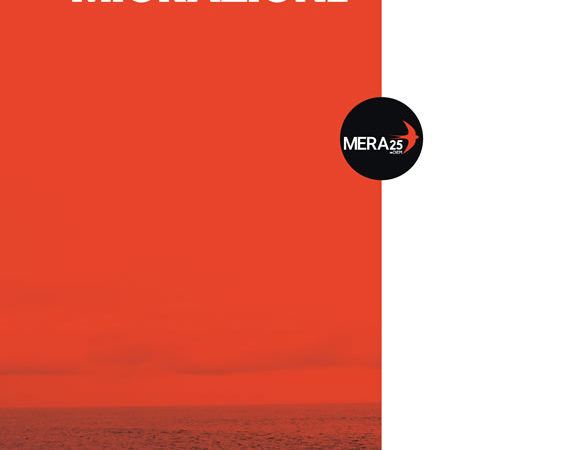Polemics after the “Harper’s Letter”
The military-industrial complex of the country that takes the entire world hostage — hint, this does not refer to Iran — has also recently signed up to the polemical “culture wars”, joining the media and cultural establishment.
In an annual defence bill of $740 billion in military funding for the 2021 fiscal year, the US included one important caveat, predictably protested from the pulpit of the Trump entourage: military bases named after Confederates must undergo a name-change.
Iraq-invader David Petraeus had, after all, long pointed out the “absurdity” of bases named after Confederates. Such gestural politics have had their ripple effects in Europe.
Signs indicate that the war-machine is playing catch-up with the art world and with journalism (of the variety that Intercept editor Glenn Greenwald derisively calls “Resistance journalism”).
The renaming of military bases spread over the planet, pays tribute, for example, to HBO’s temporary deletion of the 1939 historic film “Gone with the Wind” and other elite rites of atonement — such as the ban on the phrase “master bedroom” by real-estate dealers. Rehabilitation of the very weapons of state violence by simply removing Confederate names, only adds to the grotesqueness of the state-sponsored violence which sparked the protests.
Stunts should not distract from the danger of militarised police, who for example arrested black CNN journalist Omar Gimenez on camera, as he covered the Minneapolis riots.
But when progressives protesting in solidarity with victims also begin to act like the cops and censors, we know it cannot pave the way towards real change.
While hotly debated, many in DiEM25 already acknowledge the gravity of the situation that made a seemingly innocuous statement like Harper’s “Letter On Justice and Open Debate” necessity. They include professor Noam Chomsky (who proudly forms part of DiEM25’s Advisory Panel). His signature joins that of exiled Algerian novelist Kamel Daoud, among a host of other fellow travellers on the left as well as our adversaries in “the extreme center”.
This happened shortly after UCLA authorities placed a researcher “under investigation” for allegedly undermining the movement after he read Martin Luther King’s “Letter from a Birmingham jail”. Such reactionary instances of censorship are now affecting journalism, and not only the usual suspects in academia.
Investigative journalist Lee Fang, for example, recently faced accusations from his mostly-white colleagues at The Intercept, who campaign online to have Fang fired–because he retweeted this interview of Max, a black BLM supporter at a protest, who said “I always question, why does a black life matter only when a white man takes it?… If a white man takes my life tonight, it’s national news, but if a black man takes my life, it might not even be spoken of ”.
Fang’s interviewee perhaps calls for a radical next-step: towards a socio-economic understanding of racism, and an end to the world’s indifference towards the circumstances of many or most black people. Max’s understanding should resonate in Europe as well — would white Europeans so casually dismiss the results of Europe’s unbridled trade of weapons in Africa, were it not for post-colonial indifference at the non-news of one African killing another?
At The Intercept, however, Fang’s co-workers reached the opposite interpretation — American journalist Matt Taibbi reports campaigns involving HR going after Fang, on a mission to have him sacked for having undermined the BLM movement.
New paradigms, new understandings of the other, and new cultural forms can only be attained by exchange and discussions without penalties for wrong opinions — and never by inquisitions or exorcisms. We see an important difference between the just struggle to transform the way the police receive financing, and to reverse the militarisation of police in the Western World, from the United States to Latin America to France.
But protesters who toppled statues of anti-slavery abolitionists like Ulysses Grant, or Victor Shoechler in Martinique, and even statues of Gandhi — like those who lobby behind Democratic politicians to remove a Lincoln Emancipation Memorial in Washington DC, like those who attacked images of the former slave and anti-authoritarian Miguel de Cervantes, all participate in rites of exorcism, rather than in forces of lasting political change.
Historical-revisionists today struggle to scrub and comb the past clean of its demons, by removing sculptures, or in the older campaign to destroy murals by the artist Victor Arnautoff — a committed socialist and apprentice of Mexican painter Diego Riviera — in San Francisco; as others typically cheerlead the removal of paintings of female nudes from museums or even the removal of a mildly erotic Bolivian poem from a mural in Berlin.
Those who lobby to delete words from the dictionary, and to neuter and destroy the grammar of Latin languages because of the “inherent sexism of Spanish” cannot understand why progressive Elizabeth Warren lost popularity among the Latino voters whom she addressed as “LatinX”.
We cannot allow the stifling of criticism, so that a few media activists insist on describing the current, desperate protests in strictly cultural terms.
Among many perceptions shared between centre-right and fashionable progressive pundits, we see a prevalent notion that riots in the US erupted from a socio-economic vacuum, and had nothing to do with the absence of an emergency system of provisions to help populations weather a mass-quarantine and epidemic shutdown of economies. Hunger and despair, caused by life in limbo under an oddly managed quarantine, lacked channels of support and basic aid — let alone a Universal Basic Dividend — during the emergency.
Inevitably, predictably, in a time of forced unemployment and shutdown, bread riots broke out. Leftist broadcaster Michael Brooks, who left us too soon this July, aptly observed that while anger at police murderousness and discrimination sparked the riots in the US today, in a less formal way these are “the first bread-riots of the Trump era”.
DiEM25 believes in a common political project of economic transformation to permanently exit the current economic and ecological crises — to be achieved not only through a Green New Deal for Europe, but also by shutting down the war-machine.
Today’s progressive elites capitalise on clichéd relics of the then-transgressive achievements of the late 1960s counter-cultural revolution, contemporaneously reduced to background music for advertising and hip liberal anti-Russia activism.
In the 1960s, a greatly diverse range of Western social movements, with contrasting and conflicting visions of life and expression, during their most successful moments shared certain unifying common goals: to stop the Vietnam war, towards the utopian goal of ending militarism, poverty and imperialism. In these latter, essential projects, many anti-war religious conservatives also joined forces, despite having a radically different vision of life to hedonist students or black revolutionaries.
By contrast, present-day 21st century tribal rivalries in what was once the left, owe mostly to the abandonment of any common project, let alone the combined goals of anti-imperialism, anti-war and economic transformation. All of this, we must now recover.
As the ancient Greek philosopher Zeno — rumoured to have been one of the first anarchists — believed, everything heterogenous (diversity) can only exist thanks to a base in shared qualities, just as the branches of a tree sprawl outward in different directions. Difference within the left can exist in concert and effectively, provided we share a common basic project underlying it all.
Arturo Desimone is an Aruban-Argentinean writer and visual artist, currently based between Argentina and the Netherlands (www.arturoblogito.wordpress.com). He’s also member of DiEM25’s Thematic group on Peace and International Policy.
The views and opinions expressed here are those of the author and do not necessarily reflect DiEM25’s official policies or positions.
Volete essere informati delle azioni di DiEM25? Registratevi qui!




